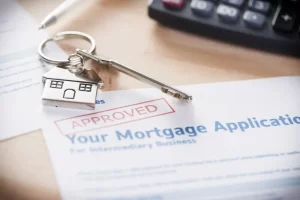The Mortgage Lending Process in Raleigh: What You Need to Know Navigating the mortgage lending…
Non-Qualified Mortgage Loans

Understanding Non-Qualified Mortgage Loans: A Guide for Potential Homebuyers
Mortgage lenders in North Carolina have always prioritized the borrower’s ability to repay their loans. However, the 2008 financial crisis highlighted the dangers of high-risk lending, leading to stricter regulations and more cautious lending practices. As a result, many borrowers who don’t fit the conventional mold find it challenging to secure a mortgage. This is where non-qualified mortgage (Non-QM) loans come into play. These loans offer a lifeline to borrowers who, while financially capable, don’t meet the strict criteria of Qualified Mortgages (QM).
In this article, we’ll explore what non-qualified mortgage loans are, the types available, and how they can help you achieve your homeownership goals.
The Evolution of Non-Qualified Mortgage Loans
The mortgage meltdown in 2008 led to the enactment of the Dodd-Frank Wall Street Reform and Consumer Protection Act. This legislation imposed rigorous standards on mortgage lenders, emphasizing the importance of a borrower’s ability to repay their loan. These standards are reflected in loans backed by government entities like the VA, FHA, Fannie Mae (FNMA), Freddie Mac (FHLMC), and even Jumbo Mortgages.
While these measures were designed to prevent another financial crisis, they also inadvertently excluded certain borrowers from the mortgage market. These are individuals who, despite their financial stability, don’t meet the specific criteria set out by the Dodd-Frank Act. Recognizing this gap, many lenders began offering non-qualified mortgage loans to accommodate these borrowers.
Who Benefits from Non-Qualified Mortgage Loans?
Non-QM loans are designed for borrowers who may not meet the conventional lending criteria but are still capable of repaying a mortgage. Here are some scenarios where a Non-QM loan might be the right fit:
- High Debt-to-Income (DTI) Ratios: Borrowers with high revolving debt may struggle to meet the DTI ratio requirements of qualified mortgages. However, if their income and financial situation support the loan, they may qualify for a Non-QM loan.
- Credit Score Challenges: A temporary financial setback, such as a job loss or medical emergency, can lead to late payments and a lower credit score. Even after recovering financially, these blemishes remain on your credit report, making it difficult to qualify for a traditional mortgage. Non-QM loans offer a solution for borrowers who have overcome past credit issues but are still facing the consequences.
- Self-Employment Income: Self-employed individuals often face challenges when applying for a mortgage. If you’ve been self-employed for less than two years, or if your tax deductions make your income appear lower than it is, a Non-QM loan might be your best option. Learn more about how self-employment affects mortgage eligibility in our Self-Employed Borrower’s Guide.
What Types of Non-QM Loans Are Available?
Non-qualified mortgage loans come in various forms, tailored to meet the diverse needs of borrowers. Here’s a closer look at some of the options available:
- Extended Amortization Loans: Unlike the standard 30-year mortgage, some Non-QM loans offer an amortization period of up to 40 years. This extended term reduces monthly payments, making it easier for borrowers to qualify.
- Interest-Only Loans: These loans allow borrowers to pay only the interest for a specific period, usually 5-10 years. This option is particularly useful for those who anticipate a significant income increase or credit improvement in the near future, allowing them to refinance into a qualified mortgage later.
- Bank Statement Loans: For self-employed borrowers, proving income can be challenging. Bank statement loans allow you to use your bank deposits as proof of income, bypassing the need for traditional income verification methods. If you’re self-employed and struggling to qualify for a mortgage, consider exploring our Bank Statement Loan options.
- Asset-Based Loans: If you have substantial assets, such as savings, investments, or real estate, these can be used to qualify for a mortgage. Lenders assess the value of your assets and determine your ability to repay the loan based on this wealth, rather than your income.
- Jumbo Non-QM Loans: For borrowers looking to finance luxury or high-priced homes, Jumbo loans are a common choice. However, qualifying for a Jumbo loan with a high DTI ratio can be difficult. Non-QM Jumbo loans offer more flexibility, allowing you to secure financing for your dream home even if you don’t meet the standard DTI requirements.
Why Consider a Non-QM Loan?
The real estate market is more competitive than ever, with home prices continuing to rise. For many potential homeowners, traditional qualified mortgages are out of reach due to stringent lending criteria. Non-QM loans provide an alternative pathway to homeownership, offering flexibility without sacrificing the lender’s security.
At Certified Home Loans, we understand that every borrower’s situation is unique. That’s why we offer a range of Non-QM loan products tailored to meet your specific needs. Whether you’re self-employed, have a high DTI ratio, or are recovering from a credit setback, we’re here to help you find the right mortgage solution.
Take the Next Step Toward Homeownership
If you believe a Non-QM loan might be the right fit for you, or if you have questions about your mortgage options, contact Certified Home Loans today. Our team of mortgage specialists in Raleigh, NC, is ready to guide you through the process and help you secure the financing you need to achieve your homeownership goals. Call us today: 919-510-1108




